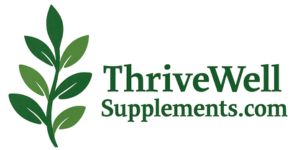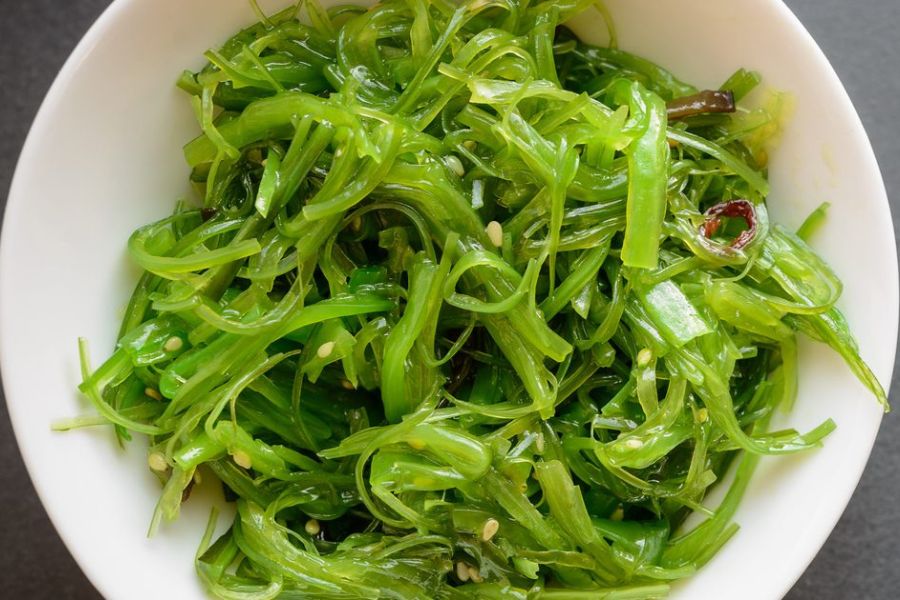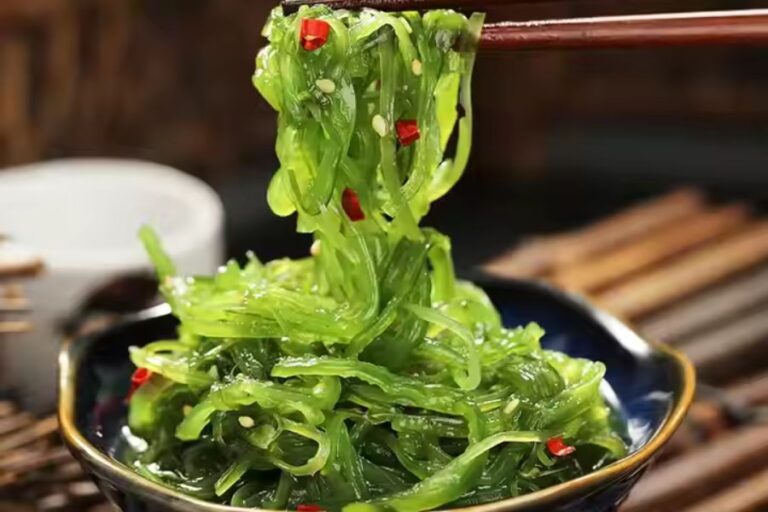Sea moss, a type of red algae, has gained attention for its nutrient content and claimed health benefits. Rich in iodine, minerals, and antioxidants, it’s often added to smoothies, capsules, and gels. While many people use sea moss to support thyroid function, immunity, and digestion, it isn’t suitable for everyone. In some cases, sea moss may cause side effects or interact with medications. This article explains who should avoid sea moss and why it’s important to approach supplementation with caution.
Who Should Not Take Sea Moss?
People with Thyroid Disorders
Sea moss naturally contains high levels of iodine, which plays a key role in thyroid hormone production. While iodine is essential, too much can overstimulate the thyroid or worsen existing conditions. People with hyperthyroidism may experience increased symptoms, such as anxiety, heart palpitations, and weight loss. For those with autoimmune thyroid disorders like Hashimoto’s thyroiditis, excess iodine can trigger flare-ups or worsen inflammation. Anyone with a thyroid condition should speak to a healthcare provider before adding sea moss to their routine, especially if they are already taking thyroid medication or iodine supplements.
Individuals with Heavy Metal Sensitivity
Sea moss grows in the ocean, where it can absorb minerals—but also contaminants like heavy metals. If harvested from polluted waters, sea moss may contain unsafe levels of arsenic, mercury, or lead. For individuals sensitive to heavy metals or those with impaired detoxification, this can pose a serious health risk. Long-term exposure may affect the nervous system, kidneys, or other organs. To reduce this risk, it’s important to choose sea moss products that are tested for purity and come from reputable sources.
People Taking Blood Thinners
Sea moss contains vitamin K and may have mild anticoagulant properties, which can affect how blood clots. This becomes a concern for people taking blood-thinning medications such as warfarin, aspirin, or clopidogrel. Combining sea moss with these drugs may increase the risk of excessive bleeding or bruising. Even small amounts of added vitamin K can interfere with the effectiveness of these medications. Anyone on blood thinners should avoid sea moss unless their healthcare provider approves its use and can monitor their medication levels closely.
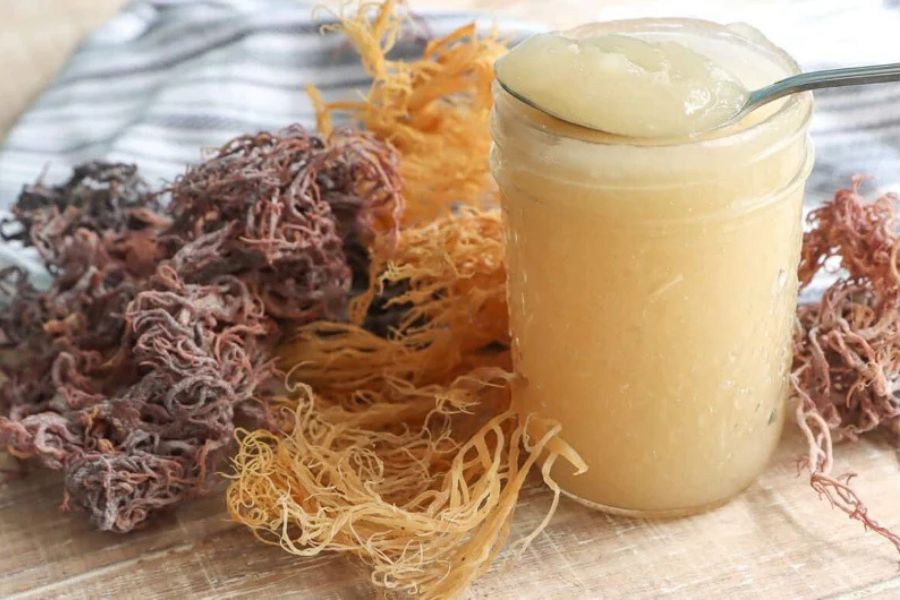
Pregnant or Breastfeeding Women
There is limited research on the safety of sea moss during pregnancy and breastfeeding. One of the main concerns is its high iodine content, which can affect the thyroid function of both the mother and the baby. Too much iodine during pregnancy may disrupt fetal thyroid development and lead to complications. Additionally, if the sea moss is contaminated with heavy metals or other toxins, it could pose a risk to the developing fetus or nursing infant. Pregnant and breastfeeding women should consult their doctor before using sea moss in any form.
Individuals with Shellfish Allergies
People with shellfish allergies may want to avoid sea moss due to the risk of cross-contamination. Although sea moss is a type of algae and not a shellfish, it often grows in the same ocean environments where shellfish are found. This raises the potential for shared harvesting tools, facilities, or ocean debris to introduce allergens. Even trace amounts can trigger allergic reactions in sensitive individuals. If you have a known shellfish allergy, it’s safest to steer clear of sea moss unless the product is lab-tested and certified allergen-free.
People with Kidney Disorders
Sea moss is high in potassium and other minerals that support overall health. However, people with kidney disease or impaired kidney function may struggle to process excess potassium. When the kidneys can’t properly filter this mineral, it can build up in the bloodstream and lead to a condition called hyperkalemia. Symptoms may include fatigue, muscle weakness, irregular heartbeat, or, in severe cases, heart failure. Individuals with chronic kidney disease or those on potassium-restricted diets should avoid sea moss unless advised otherwise by a healthcare professional.
Children Under a Certain Age
Sea moss is not recommended for young children due to the lack of safety data. Children’s bodies are more sensitive to shifts in mineral balance, particularly iodine, which can influence growth and thyroid function. Overconsumption may lead to hormonal imbalances or digestive upset. Additionally, many sea moss products are unregulated and may contain contaminants that pose a greater risk to children. Until more research confirms safe dosing, it’s best to avoid giving sea moss to children unless a pediatrician specifically recommends it.
People Using Certain Medications
Sea moss can interact with a range of medications, particularly those affecting the thyroid, immune system, or electrolyte balance. For example, individuals taking levothyroxine for thyroid issues may experience altered absorption due to sea moss’s iodine content. Diuretics and certain heart medications may also react poorly with the potassium in sea moss, increasing the risk of electrolyte imbalance. Immunosuppressants, often prescribed after organ transplants or for autoimmune conditions, may be affected by the bioactive compounds in sea moss. Anyone taking prescription medications should consult a healthcare provider before using sea moss to avoid potential interactions.
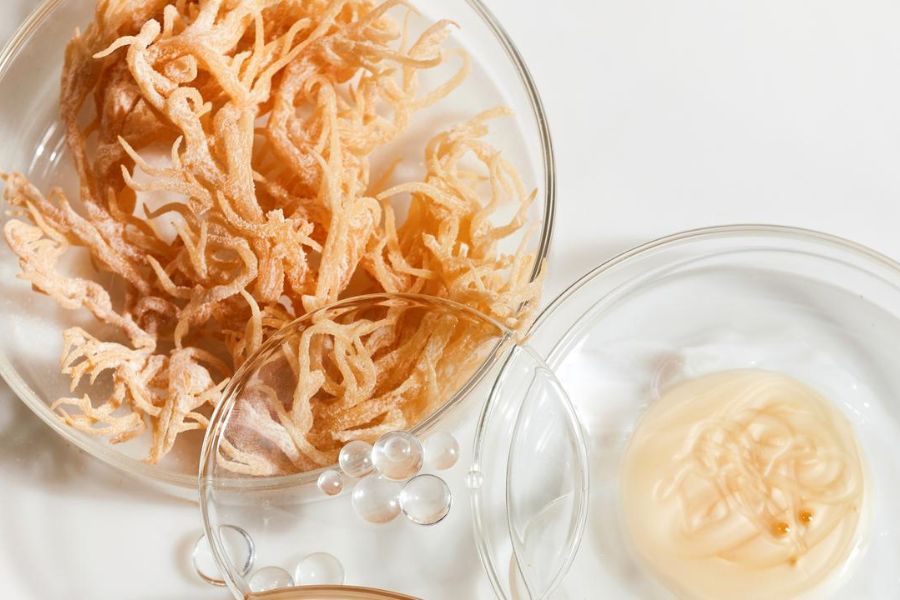
Tips for Safe Use (for Others)
If you don’t fall into a high-risk group, sea moss may offer nutritional benefits when used responsibly. To reduce the chance of side effects, start with a small dose—about 1 to 2 tablespoons of gel or 500 to 1,000 mg of capsules daily. Choose products from trusted brands that test for heavy metals and contaminants. Avoid mixing sea moss with other high-iodine supplements unless your doctor approves it. Watch for signs of overuse, such as stomach discomfort, a metallic taste, or changes in thyroid function. Regular check-ins with a healthcare provider can help ensure safe, long-term use.
Conclusion
While sea moss can be a useful supplement for many, it isn’t right for everyone. People with thyroid disorders, kidney disease, shellfish allergies, or those taking certain medications may face serious risks. Pregnant women, breastfeeding mothers, and children should also use caution due to the lack of safety research. Even for healthy individuals, quality and dosage matter. Choosing clean, tested products and staying within recommended amounts helps lower the chance of side effects. If you’re considering sea moss, speak with a healthcare provider first—especially if you have underlying health conditions or take prescription medication.
Frequently Asked Questions (FAQs)
1. Is sea moss safe to take every day?
For most healthy adults, moderate daily use of sea moss can be safe. However, taking too much may lead to excess iodine intake, digestive issues, or mineral imbalances. Always follow dosage guidelines and consult a healthcare provider if you’re unsure.
2. Can sea moss cause allergic reactions?
Yes, especially in individuals with shellfish allergies. Sea moss may be cross-contaminated during harvesting or processing. If you have food allergies, check with your doctor before use and choose products labeled allergen-free.
3. What are the side effects of taking sea moss?
Possible side effects include stomach cramps, nausea, iodine overdose, and altered thyroid function. Contaminated products may also contain heavy metals, which can cause more serious health issues over time.
4. Can I take sea moss with prescription medications?
It depends on the medication. Sea moss may interfere with thyroid drugs, diuretics, blood thinners, or potassium-regulating medications. Always check with your doctor before combining supplements with prescriptions.
5. Is sea moss safe for children?
There is limited safety data on sea moss use in children. Due to the risk of iodine imbalance and possible contamination, it’s best to avoid giving sea moss to children unless advised by a pediatrician.
6. How can I choose a safe sea moss product?
Look for products that are third-party tested for purity, free of additives, and sourced from clean waters. Reputable brands should provide transparency about where and how their sea moss is harvested.
References
- Pereira L, Valado A. The seaweed diet in prevention and treatment of the neurodegenerative diseases. Mar Drugs. 2021;19(3):128. doi:10.3390/md19030128
- Wells ML, Potin P, Craigie JS, et al. Algae as nutritional and functional food sources: Revisiting our understanding. J Appl Phycol. 2017;29(2):949-982. doi:10.1007/s10811-016-0974-5
- MedlinePlus. Soluble vs. insoluble fiber.
- Soliman GA. Dietary fiber, atherosclerosis, and cardiovascular disease. Nutrients. 2019;11(5):1155. doi:10.3390/nu11051155
- Wilson DW, Nash P, Buttar HS, et al. The role of food antioxidants, benefits of functional foods, and influence of feeding habits on the health of the older person: An overview. Antioxidants (Basel). 2017;6(4):81. doi:10.3390/antiox6040081
- Lomartire S, Marques JC, Gonçalves AMM. An overview to the health benefits of seaweeds consumption. Mar Drugs. 2021;19(6):341. doi:10.3390/md19060341
- Food and Drug Administration. NFL DRVs food components.
- U.S. Department of Agriculture. FoodData Central: Seaweed, irishmoss, raw.
- National Institutes of Health: Office of Dietary Supplements. Dietary supplements: What you need to know.
- Cherry P, O’Hara C, Magee PJ, McSorley EM, Allsopp PJ. Risks and benefits of consuming edible seaweeds. Nutr Rev. 2019;77(5):307-329. doi:10.1093/nutrit/nuy066
- Farebrother J, Zimmermann MB, Andersson M. Excess iodine intake: Sources, assessment, and effects on thyroid function. Ann N Y Acad Sci. 2019;1446(1):44-65. doi:10.1111/nyas.14041
- The Moss Way. (n.d.). What happens if you take sea moss every day?. The Moss Way.
- Banner Health. (n.d.). Pros and cons of sea moss (Irish moss). Banner Health.
- Health.com Editors. (n.d.). Sea moss benefits: Nutrition, uses, and risks. Health.
- Clifford, C. (2023, June 23). Sea moss health benefits: Here’s what the science says. CNBC.
- Verywell Health. (2023, September 26). Sea moss: Everything you need to know. Verywell Health.
- WebMD. (n.d.). Sea moss: Uses, side effects, and more. WebMD.
- Cleveland Clinic. (2022, March 17). Is sea moss good for you?. Cleveland Clinic Health Essentials.
